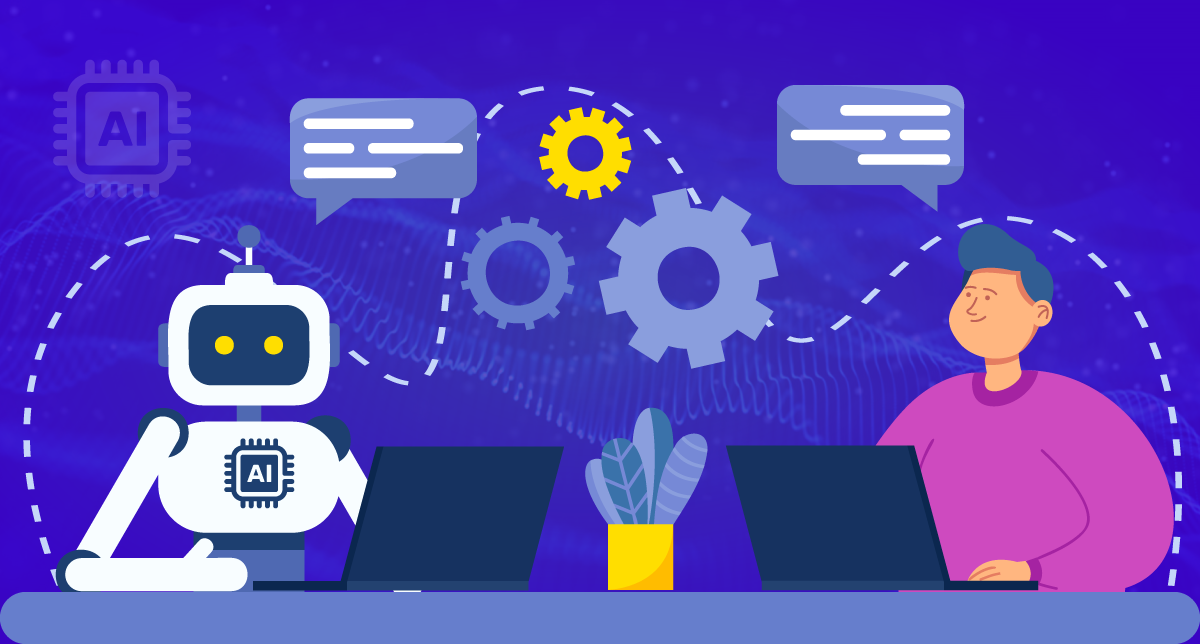
The New World of AI Customer Service
Customer service has always been the heart of any successful business. Satisfied customers drive loyalty, generate positive brand reputations, and lead to long-term profitability. But in today’s fast-paced world, customers demand faster responses, personalized solutions, and around-the-clock service. Agentic AI has stepped in as a game-changing innovation in customer service.
AI agents are revolutionizing customer interactions with their ability to integrate machine learning, Natural Language Processing (NLP), and data analytics. Unlike traditional chatbots, these advanced systems deliver smarter, more personalized, and efficient support, empowering businesses to scale and excel.
For the uninitiated, AI customer service agents aren’t just tools—they’re transformational partners that businesses are adopting to reshape the customer experience.
What Are AI Customer Service Agents?
At their core, AI customer service agents are technology-driven solutions designed to handle and optimize customer queries. Unlike basic bots with scripted responses, these agents leverage Machine Learning (ML), NLP, and data analytics to understand customer requests better and deliver actionable results.
The Features of AI Agents:
- Machine Learning for Adaptive Solutions
AI agents learn from each interaction, allowing them to improve their accuracy and relevance continuously.
- Natural Language Processing (NLP)
NLP enables these agents to understand and respond to customer questions in a natural and human-like way, even with slang or colloquial phrases.
- Data-Driven Insights
By analyzing query patterns, AI agents can provide strategic customer insights.
Examples of AI Agents in Action:
- An AI assistant handling airline customer inquiries about flight cancellations or baggage issues.
- A retail chatbot providing real-time order tracking via a website or mobile app.
Benefits of AI Agents in Customer Service
AI customer service agents aren’t merely a luxury—they’re becoming essential in delivering seamless and efficient customer experiences. Here’s why they’re crucial for your business transformation:
24/7 Availability
AI agents never sleep. They ensure customers receive reliable support at any hour, eliminating the frustration of waiting for a human agent.
Efficiency and Speed
AI agents can process customer inquiries within seconds, resolving issues faster than traditional methods.
Cost Savings
Implementing AI agents reduces operational costs by reducing the need for large customer service teams while scaling support services.
Consistency and Accuracy
Human errors are inevitable, but AI agents ensure uniform responses across inquiries, improving trust and reducing errors.
Scalability
AI agents can handle the load seamlessly, whether it’s one inquiry or one thousand at once. They scale effortlessly to meet your growing needs.
Imagine how much easier it would be to have a system instantly resolve a significant portion of your customer queries—all while saving operational costs.
Key Capabilities of AI Customer Service Agents
AI agents bring an array of capabilities to customer interactions, raising the standards for customer experience.
Understanding Customer Queries
Thanks to advances in NLP, AI agents can comprehend even complex queries. For instance, phrases like “I need help with my account” and “Can you fix my login issue?” get sorted seamlessly.
Personalization
By analyzing customer data, AI agents offer tailored responses and recommendations. For example, a returning customer might receive product suggestions based on past purchases, leaving them surprised and delighted.
Multichannel Support
AI agents operate across multiple platforms—from chat and email to social media or voice assistants—ensuring customers encounter the same seamless experience wherever they reach out.
Continuous Learning and Improvement
AI systems don’t just work; they evolve. Every interaction helps these intelligent systems identify gaps and improve their responses for the future.
Real-World Use Cases
Chatbots for Routine Queries
Brands like Delta Airlines use AI tools to resolve basic inquiries like flight statuses or ticket cancellations. These quick responses ease the load on human agents.
Virtual Assistants for Complex Support
Companies in the healthcare or finance sectors use AI-enabled assistants to tackle complex requests such as medical benefits explanations or account reconciliations.
Feedback Analysis
Retail giants like Sephora employ AI to collect and analyze customer feedback, identifying trends or patterns of dissatisfaction to stay ahead.
Order Management
E-commerce leaders use AI agents to track real-time deliveries and provide instant updates, boosting customer satisfaction.
By combining such use cases, businesses can enhance operational efficiency while delivering an unmatched customer experience.
Challenges in Implementing AI Agents
While AI agents can solve numerous customer service challenges, there are a few limitations:
- Lack of Emotional Understanding
AI agents can struggle with emotional intelligence, making interactions seem impersonal when managing sensitive issues.
- Complex Query Handling
Despite advancements, agents may falter with highly nuanced or layered customer requests. In such cases, escalation to human agents remains necessary.
- Integration Hurdles
Integrating AI solutions into existing systems like CRM or ERP platforms can be time-consuming and expensive.
- Data Privacy Concerns
Since AI agents deal with vast customer data, businesses must ensure strict security protocols to maintain trust.
To overcome these limitations, businesses should adopt hybrid models where AI handles repetitive tasks while humans manage emotional or intricate cases.
The Future of AI in Customer Service
AI in customer service isn’t stagnant—it’s growing and evolving. Here are the top trends shaping the future of AI agents in customer care:
1. Advanced Personalization
AI agents will become better at predicting what customers need before they even ask, creating hyper-personalized experiences.
2. Voice-First Interactions
With the rise of voice assistants like Alexa or Google Assistant, AI agents will soon prioritize voice-based customer interactions.
3. Enhanced Predictive Capabilities
Future AI systems will proactively address issues before customers notice, reducing complaints.
4. Wider Adoption
With ongoing advancements, AI agents will expand to smaller businesses, making technology accessible across industries.
Final Thoughts
AI agents represent an exciting opportunity to transform customer service. Innovative technology allows businesses to revolutionize customer interactions, scale their support teams, enhance efficiency, and reduce costs. Agentic AI will become an essential part of competitive customer care strategies.
But remember, AI isn’t replacing humans—it’s empowering them. A thoughtful blend of AI systems and human expertise can deliver exceptional customer experiences.
Are you considering integrating AI agents into your business? Start exploring solutions today to experience the benefits firsthand. Stay ahead of the curve and position your business as a leader in customer service innovation!
PhenomᵉCloud is a comprehensive technology solutions provider committed to empowering businesses to overcome challenges, enhance their workforce capabilities, and achieve superior outcomes.


Leave a Comment